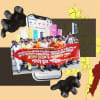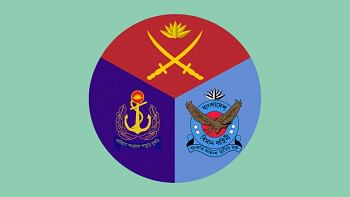CHT regional council fate still unresolved

Although the historic Chittagong Hill Tracts (CHT) peace accord steps into its 27th year today, the legal complexities over the hill tract regional council remain unresolved.
Since its formation in 1999, two years after the accord was signed on December 2, 1997, the CHT regional council has been functioning under the leadership of Parbatya Chattagram Jana Samhati Samiti (PCJSS) President Jyotirindra Bodhipriya Larma, popularly known as Santu Larma.
In the meantime, 13 years have passed since two appeals overturn a High Court verdict declaring the regional council illegal and unconstitutional.
But the Appellate Division could not settle the issues because the parties concerned apparently remain apathetic about disposing of the appeals.
Following two writ petitions filed by one M Badiuzzaman and Md Tajul Islam, who is currently the chief prosecutor of the International Crimes Tribunal, on April 13, 2010, a HC bench led by Justice Syed Refaat Ahmed, who is now the chief justice, declared the CHT Regional Council Act 1998 illegal and unconstitutional.
The HC said in its verdict that the unitary character of the state, which is the basic feature of the constitution, has been hampered due to the act.
The council, however, has been functioning by dint of the Appellate Division staying the HC verdict.
The Awami League government and the CHT Regional Council filed two appeals in 2011 challenging the HC verdict, saying that the council is a statutory authority to facilitate the functions of three hill district councils and was formed in line with the constitution.
The provisions of the CHT Regional Council Act 1998, which have been declared unconstitutional by the HC, are actually protected by the constitution, as it provides for affirmative action in favour of a backward section of the population, they said in the appeals.
The Appellate Division confirmed its chamber judge's stay order on March 3, 2011 and opened the way for the government and Santu Larma to move two appeals.
The appeals had come up in the cause list of the Appellate Division on March 6, 2018, for hearing.
The same day, a four-member appellate bench headed by the Chief Justice Syed Mahmud Hossain adjourned the hearing for four weeks after the Additional Attorney General Murad Reza prayed for more time.
Later, the appeals were not heard by the apex court as neither of the parties took any move to hear the matter.
Murad Reza resigned from the post of additional attorney general on October 11, 2020.
Contacted, petitioner Tajul Islam told The Daily Star on November 22 that it is not possible for him to take any initiative at this moment as he is busy at the International Crimes Tribunal.
"If the appeals come up on the hearing list, the state counsels concerned will take necessary steps," he added.
Barrister Belayet Hossain, a lawyer for the writ petitioners, told The Daily Star on November 22 that a long hearing is needed for the Appellate Division to settle the issues of CHT regional council as the matter is related with historical, political and constitutional aspects.
"The High Court verdict that declared regional council illegal and unconstitutional needs to be upheld as the council is not a local government. It is a kind of mini state within the republic of Bangladesh. The CHT Regional Council Act 1998 has destroyed the scheme of the unitary government system," he added.
Contacted, Additional Attorney General Aneek R Haque told this correspondent, on November 22, that the appeals may soon be up for hearing as they are on the list.

 For all latest news, follow The Daily Star's Google News channel.
For all latest news, follow The Daily Star's Google News channel. 





Comments